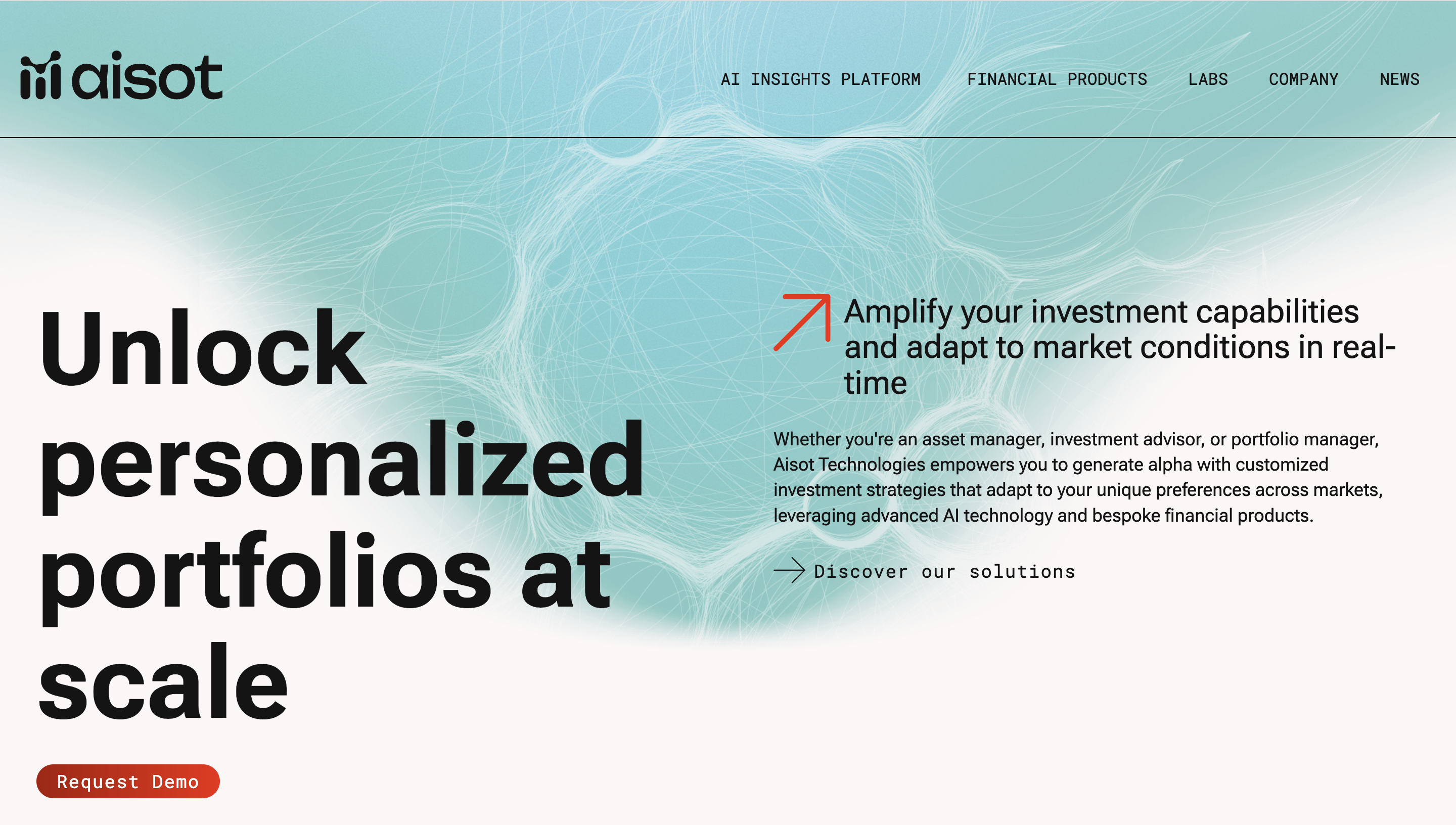
Is there a subsector of fintech that is more eager to adopt AI than the world of investing and asset management? From the burden of ever-growing amounts of potentially valuable data to the demands of managing risk to the challenge of generating alpha and producing above market returns, there are many ways that wealth management will benefit from innovations in AI – and the people involved in wealth management know it.
Founded by a team of former ETH Zurich researchers, aisot is one of the companies that is dedicated to helping asset and wealth managers make the most of the AI opportunity. The Swiss startup, launched in 2019 and headquartered in Zurich, leverages generative AI and access to market and alternative data sources, to deliver analytics, forecasts, and actionable insights to traders, business analysts, data scientists, and other financial services professionals.
“Information moves markets,” aisot co-founder and CEO Stefan Klauser said at the beginning of his Finovate demo in 2021. “At aisot we give you specialized market insights and full costs. (Our technology) reduces forecasting errors by up to 50%, and can enhance your returns. Whether you are a machine learning expert, a quant, or someone that has not had a systematic approach to data before, aisot’s services are always easy to use.”

aisot launched its AI Insights Platform earlier this month. The cloud-based solution enables asset managers and wealth managers to offer their clients personalized investment portfolios at scale. The platform consists of three components: the AI Insights Dashboard, the Custom Feature Suite, and the Product Launch Pad. Via the Dashboard, users can investigate multiple market scenarios and fine-tune investment strategies. Dashboard features include an integrated portfolio builder, an optimizer to analyze historical data and market trends, and a statistical toolkit to enable users to review and evaluate portfolio performance. The platform’s Custom Features Suite allows users to vote on future platform enhancements and additions. The Product Launch Pad gives users the ability to launch structured notes, transforming investment strategies into tradable and liquid securities.
Klauser put the new offering in the context of the company’s overall philosophy as a “digital-first company.” He explained, “We conscientiously push technological boundaries while upholding core principles and stringent controls. Our relentless focus remains on our customer, shaping the platform based on their evolving needs in terms of performance, personalization, and scalability.”

The new product launch comes in the wake of aisot’s rebrand in July. In addition to a preview of the company’s AI Insights Platform and a new website, aisot also shared information about aisot Labs, the firm’s AI engine, as well as the company’s new investment products. These include aisot’s AI Balanced Digital Assets. An Actively Managed Certificate that enables investors to participate in the performance of an underlying investment strategy, AI Balanced Digital Assets is a long only, AI-driven, crypto portfolio built to match the volatility of a Bitcoin or Ethereum tracker while at the same time maximizing performance.
aisot has raised a total of $2.5 million (CHF 2.3 million) in funding, most recently securing $2 million (CHF 1.8 million) in seed capital this spring. The round was led by Haute Capital Partners, with angel investors, including members of the Swiss ICT Investor Club (SICTIC), also participating. The investment will enable aisot to add to its team, drive continued product development, and support the company’s growth projects.
Haute CEO and Chairman Thibault Leroy Bürki praised aisot as “a leading provider of AI solutions for asset and wealth management.” He added, “We chose aisot for their innovative approach to wealth management, advanced AI engine, and ability to generate alpha in real-time … aisot’s AI engine provides clients with the amazing ability to adjust customized portfolios to market trends in real-time while generating alpha.”










